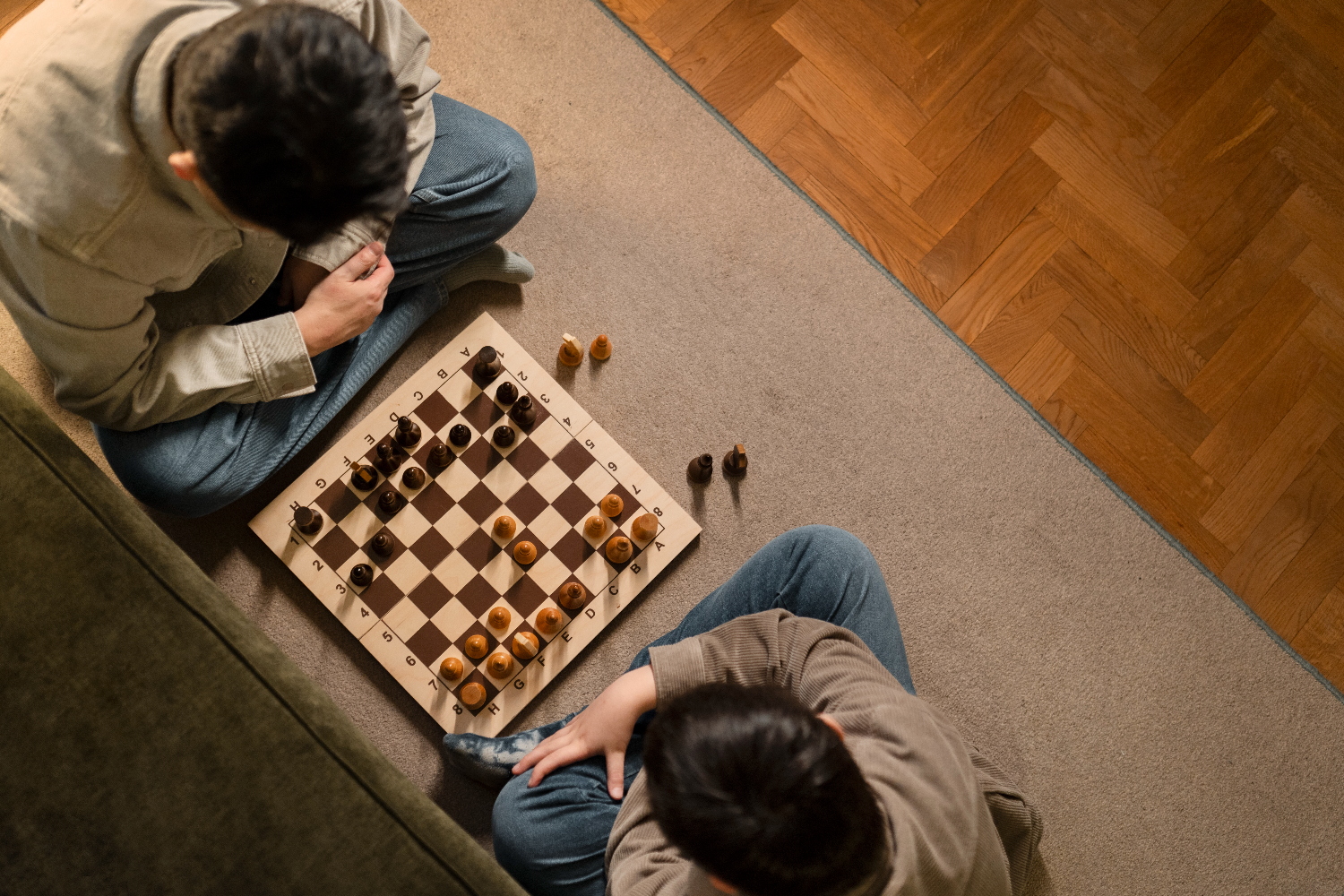In a world full of strip-mall gyms, fad fitness classes, and social media #fitnessmotivation, we’re constantly reminded to exercise our bodies. Physical exercise helps your brain and body avoid many of the negative effects of aging, but did you know it’s just as important to exercise your brain as well? Whether you flex your mental muscles with formal brain training or just emphasize learning new things, research is showing marked benefits…some even 10 years later!
Participating in Meaningful Intellectual Stimulation Improves Aging
Keeping your brain intellectually engaged has been linked to more successful aging. Those who participate in meaningful activities, such as volunteering or developing new talents, report feeling happier and healthier overall. Learning new skills may improve your brain’s ability to both process and recall. One recent study found that older adults who spent time quilting or learning digital photography had more memory improvement than those who only socialized or participated in less cognitively demanding activities. [1]
Brain Training = Brain #gains
Formal cognitive training has also produced promising results. In the Advanced Cognitive Training for Independent and Vital Elderly (ACTIVE) trial, healthy adults age 65 and older participated in 10 sessions of memory training, reasoning training, or speed-processing training. [2] These sessions were able to improve participants’ mental skills in the specific area in which they were trained. In addition, most of these improvements lasted 10 years after training completion! [3]
Building Brain Strength
There are a lot of activities that you can do on your own to keep your mind active. An added bonus is that many of them are a lot of fun! Try incorporating a few of the following into your daily schedule to help boost your brain strength:
- Have a reading party (alone or with others). Create a comfy spot to settle in with a new book or magazine.
- Start learning a new language. Duolingo is one of our favorite ways!
- Play games. Board games, word games, or even video games with your grandkids.
- Sign up for a class. Check your local library, community center, university, or community college for free classes. You can also find free classes online for almost anything you can think of.
- Learn a new skill or hobby. YouTube can teach you anything, but even better–find someone to teach you something that you’ve always wanted to try!
- Volunteer. Share your time and talents with others, or just show up to help and you may come away with new skills, new friends, and new brain connections!
Cognitive Reserve: Your Brain’s Retirement Account
We’ve been counseled to set aside a little money for retirement for years now so that we’ll have something in the bank when we need it. Wouldn’t it be a good idea to do the same thing for your brain?
Scientists think that brain-engaging activities may help protect your brain by establishing a “cognitive reserve.” These types of cognitive activities may help your brain become more resilient in some mental functions, allowing it to compensate and cope with age-related changes and health conditions that can affect your brain. The cognitive reserve theory states that engagement in mentally stimulating activities or a high educational level may offset the negative effects that abnormal brain changes can have on cognitive function. [4]
The concept of Cognitive Reserve originated in the late 1980s when researchers described asymptomatic individuals who were found through autopsy to have brain changes consistent with advanced Alzheimer’s disease. [5] Surprisingly, these individuals showed no symptoms of the disease while they were alive because they had a large enough cognitive reserve to offset the damage and continue to function in a successful manner.
“Research has shown that people with greater cognitive reserve are better able to stave off symptoms of degenerative brain changes associated with dementia or other brain diseases, such as Parkinson’s disease, multiple sclerosis, or a stroke. A more robust cognitive reserve can also help you function better for longer if you’re exposed to unexpected life events, such as stress, surgery, or toxins in the environment. Such circumstances demand extra effort from your brain—similar to requiring a car to engage another gear. When the brain cannot cope, you can become confused, develop delirium, or show signs of disease.”
-Harvard Health
Furthermore, a population-based prospective cohort study found that engaging in mentally stimulating activities in late life was linked to a decreased risk of mild cognitive impairment. [6] They determined that activities that included playing games and engaging in crafts, computer use, and socializing significantly reduced one’s risk of cognitive decline.
3 more reasons to work out your brain today.
There have been several additional notable correlations from recent research that should make us all want to make brain training a top priority:
- Researchers at UC Berkeley determined that there is a significant association between engaging in cognitive activities and decreased buildup of amyloid-beta in the brain’s cortex. While amyloid-beta has long been associated with Alzheimer’s disease, emerging evidence suggests it may initially serve a protective role, such as responding to infections or trapping harmful substances. However, chronic accumulation of amyloid-beta can lead to inflammation and impair normal brain functioning, contributing to neurodegeneration. [7]
- Another study found that complex mental activity across one’s life span was associated with decreased hippocampal atrophy (i.e. less brain shrinkage). Amazing! I think we can all agree that no one wants their brain to waste away. [8]
- Lastly, a recent report indicated that higher cognitive reserve was associated with decreased age-related changes in cerebrospinal fluid biomarkers. [9]
There is so much that you can do to strengthen your brain and reduce your risk of Alzheimer’s disease. Research indicates that making simple lifestyle changes today can help you keep your future bright and your relationships vibrant. Watch for opportunities to learn new things and dedicate a little time each day to doing brain training and getting your brain in shape!
References
- https://www.ncbi.nlm.nih.gov/pmc/articles/PMC4154531/
- https://www.ncbi.nlm.nih.gov/pmc/articles/PMC3934012/
- https://pubmed.ncbi.nlm.nih.gov/24417410/
- https://pubmed.ncbi.nlm.nih.gov/23079557/
- https://pubmed.ncbi.nlm.nih.gov/2897823/
- https://pubmed.ncbi.nlm.nih.gov/21677242/
- https://pubmed.ncbi.nlm.nih.gov/22271235/
- https://pubmed.ncbi.nlm.nih.gov/18612379/
- https://pubmed.ncbi.nlm.nih.gov/25893879/



